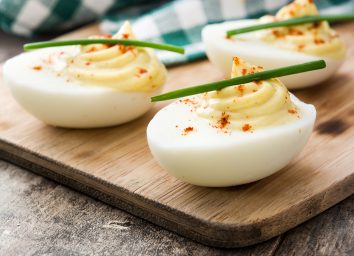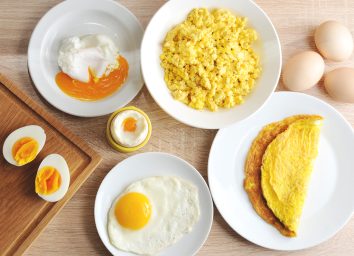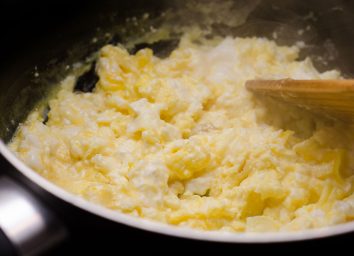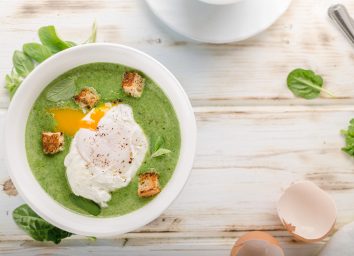How to Properly Fry an Egg Without Destroying the Yolk
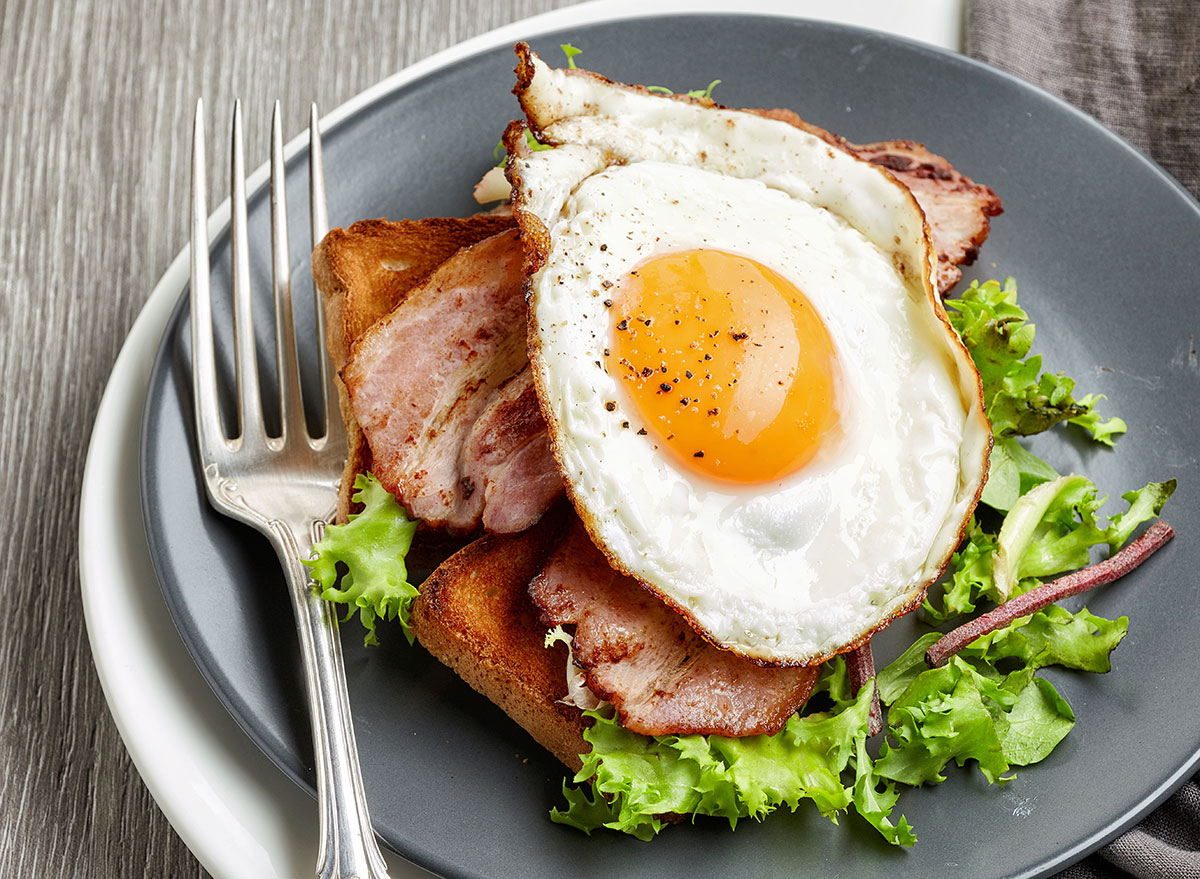
How many times have you attempted to make the perfect sunny-side up egg but you end up accidentally frying the egg until the point of the yolk's demise? A clear indication that you've incorrectly fried an egg is when the yolk is completely dried out. When a yolk has experienced too much heat, it turns into a yellow sponge-like dollop, which doesn't sound appetizing, does it? A yolk is meant to be runny and delicious, as there's nothing quite like using the side of your fork to puncture a plump dark yellow, almost orange yolk. So, how do you fry an egg the right way?
Well, let's back up a bit to give the yolk some more thought. See, all of an egg's nutrients are held within the confines of the yolk. It's also the part of the egg that comprises cholesterol, which is why whole eggs have formerly been deemed unhealthy (note: egg whites have no cholesterol). Studies are conflicting about whether or not eggs are harmful to your overall health, but it's important to note that just one large egg packs 186 milligrams of dietary cholesterol, which is about 62 percent of your daily needs of the stuff. Spacing your consumption of eggs throughout the week is perhaps the best way to steer clear of heart disease. And hey, no one likes it when the yolk is so dried out that it feels rubbery, right?
RELATED: Easy, healthy, 350-calorie recipe ideas you can make at home.
You want an egg with the yolk that—once cut into—spills out onto your piece of buttery toast. To get the lowdown on how to fry an egg and achieve such as task, we turned to Chef David Burke of New York City's David Burke Tavern to give us a simple trick that you can do at home.
How do you fry an egg so that the outer white part is crispy, but the yolk doesn't completely dry out?
"Overcooking a fried egg is easy to do," says Burke. "The trick is to use a little water in the pan to steam it. You can cover the pan with a lid if you want an over-easy egg, or you can simply add the water to an uncovered pan for a sunny-side-up egg."
The addition of water in this high-heat environment helps to prevent the proteins in the yolk from denaturing to the point that they become rubbery. That's the trick: some good old-fashioned water!
How should you grease the pan? How high should the heat setting be?
"When trying to get a crispy fried egg, you want to use oil instead of butter, as butter has a bit of water in it and oil does not," explains Burke. "You also need to use a higher heat." Butter can actually cause your egg to burn more quickly than olive oil, even though the two have near identical smoke points.
Now, it's time to stop dehydrating your egg yolk and get that crispy outer egg without the rubbery middle. Now you know the perfectly runny fried egg is easier than you think—just add water!
